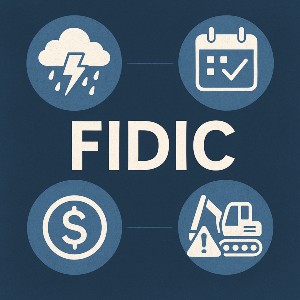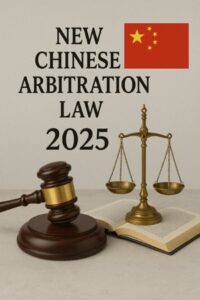Construction contracts do more than set out scope, price, and timelines – they also determine how risks are allocated between the parties.[1] Risk allocation is often described as the “soul” of a construction contract because it defines who bears responsibility when projects face design errors, cost overruns, delays, or unforeseen site conditions.[2] The Fédération Internationale […]
News
Provisional Measures in CAS Arbitration: IGF v. FIG
On 14 October 2025, according to a Media Release, the Court of Arbitration for Sport (“CAS”) issued two decisions rejecting requests for urgent provisional measures in two appeals filed by the Israeli Gymnastics Federation (“IGF”) and Israeli gymnasts against the International Gymnastics Federation (“FIG”) following a statement by the Indonesian government that it would not […]
Errors in the Employer’s Requirements under FIDIC Contracts: Legal Implications and Lessons Learned
Errors in the Employer’s Requirements (“ER”) are a recurring source of disputes in international construction projects governed by International Federation of Consulting Engineers (“FIDIC”) contracts. These requirements define the project’s technical and functional criteria, and errors can have significant legal and financial consequences for both employers and contractors. This note examines how such errors are […]
Managing Construction Disputes: Understanding the Causes
Construction projects are inherently complex endeavours that involve multiple participants, demand coordination, and carry inherent risks.[1] They bring together a wide range of stakeholders, technical experts, and layers of documentation that can run to hundreds or even thousands of pages. Every project operates under tight deadlines and budget pressures, where even minor delays or disruptions […]
China’s New Arbitration Law 2025: Overview of Key Changes
On 12 September 2025, China adopted a comprehensive revision of its Arbitration Law (English version; Chinese version), which will enter into force on 1 March 2026 (“2025 Arbitration Law”), replacing the 2017 version currently in force (“2017 Arbitration Law”) (English version; Chinese version). Brief Legislative History China’s Arbitration Law was first adopted on 31 August […]
Unpaid Invoices and International Arbitration: Is It Worth It?
In today’s global marketplace, unpaid invoices are a persistent headache for businesses trading across borders. When a foreign customer fails to pay, as often occurs in practice, the risks multiply: unfamiliar legal systems, language barriers, and the challenge of enforcing judgments abroad. International arbitration has emerged as a preferred solution for resolving these disputes, offering […]
AI Construction Arbitrator: Revolutionising the Future of International Arbitration?
Artificial intelligence (AI) is rapidly transforming industries worldwide – and now, it is reshaping the field of international arbitration. The American Arbitration Association (“AAA”) and its international division, the International Centre for Dispute Resolution (“ICDR”), are pioneering this revolution with the launch of an AI-powered arbitrator dedicated to construction disputes. Beginning in November 2025, this […]
Effective Case Management in International Arbitration
International arbitration is often praised for its efficiency, flexibility, and party autonomy. Yet, these advantages are only realised through effective case management, which orchestrates the procedural journey from the constitution of the tribunal to the rendering of the final award. Case management in international arbitration refers to the deliberate structuring and supervision of arbitral proceedings […]
Analysing the Site Visit Model Protocol for International Arbitration
It has been one year since the Arbitration Committee of the International Bar Association (the “IBA”)[1] issued the Site Visit Model Protocol for International Arbitration (the “Site Visit Protocol”).[2] The Site Visit Protocol includes 13 articles and accompanying drafting notes for each of them, designed to facilitate the conduct of site visits in international arbitrations. […]







